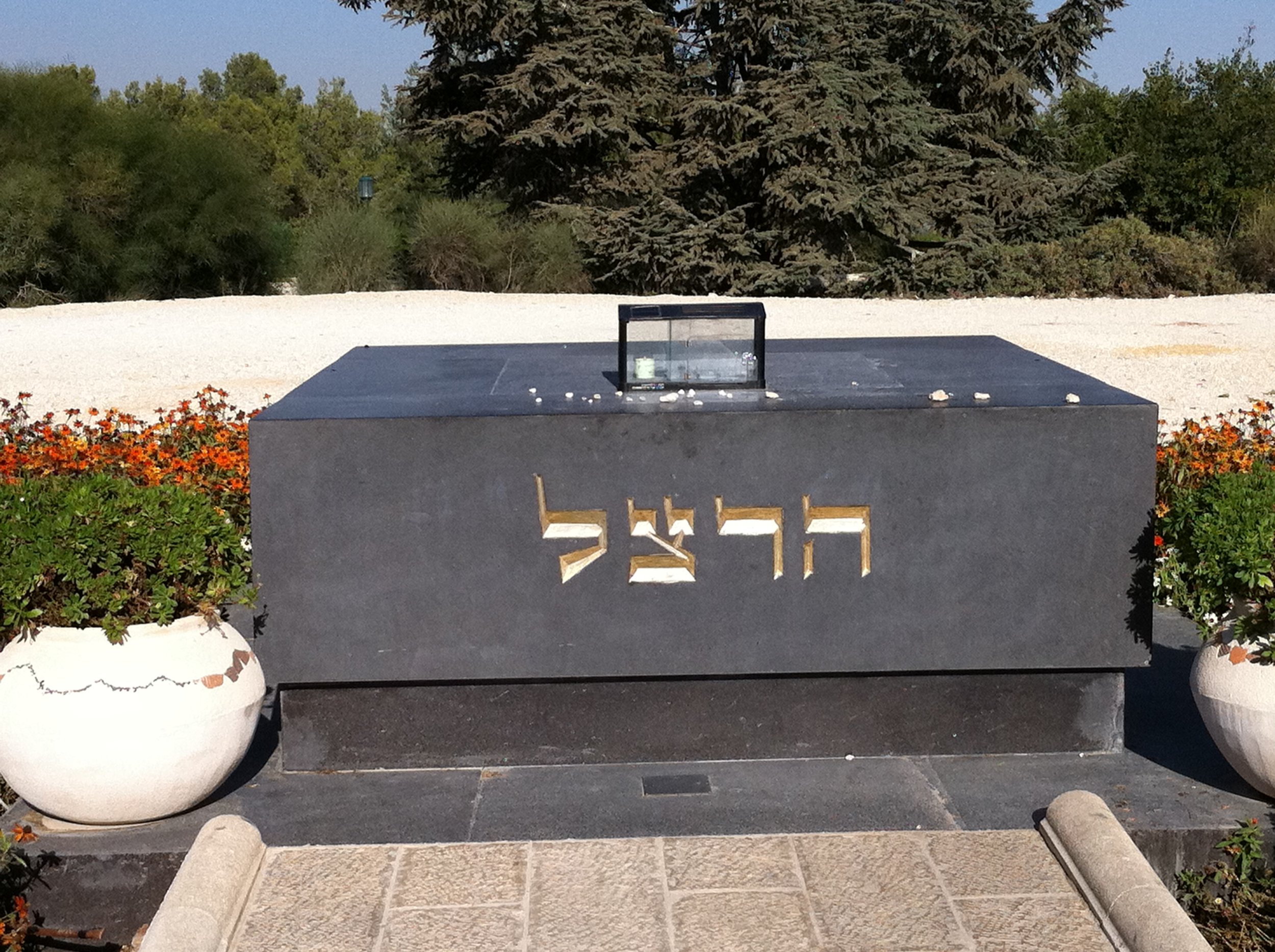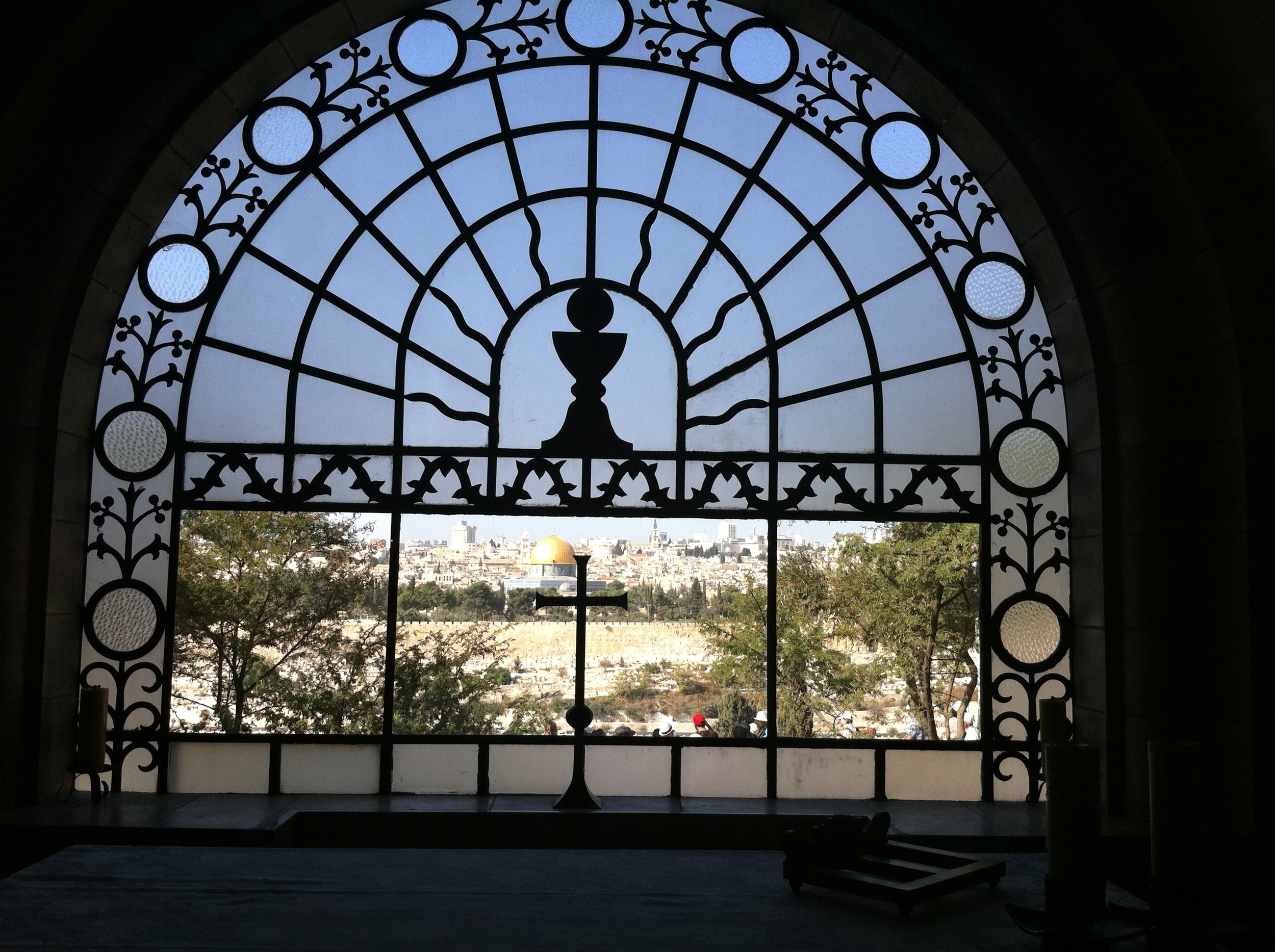Zion, O Zion
The famous Wailing Wall or Western Wall.
A long time ago, a man named David brought a sacred object to a town named Jerusalem, placing it on a mountain as a way to enhance the spiritual identity of the Jewish people.
The grave of Theodore Herzl, in West Jerusalem.
If you identified this as a Biblical story, you're half-right. King David did, indeed, place the Ark of the Covenant at Mount Moriah in Jerusalem of the Jebusites to establish the new capital of his kingdom and unify the Jewish people. In 1949, another event shares echoes of this story. David Ben-Gurion, President of the new State of Israel, brought the remains of Theodore Herzl (founder of modern, political Zionism) to a mountain in the new Jerusalem (soon to be called Mt. Herzl), so that the Jewish people could be united around a new secularly sacred site.
Our time in Israel and Palestine has been engaging a number of stories and and narratives. We have certainly privileged the Christian stories, both modern and ancient. But you cannot come here without engaging the political, cultural, and religious narratives of Israelis and Palestinians alike. And as we spend time with the Israeli Jewish cultural identity, there is no better place to do this than Mt. Herzl.
I'm very aware of how much of a parallel there is between the Israeli civil religion and the American version. Benjamin Franklin, in the early days of the new republic, reflected on how these new Americans could have allegiance to a transcendent idea when there would be separation of church and state. As a good deist, he identified several characteristics to which he thought all religions could ascribe. It was around these ideas that the American civil religion took root and grew. It has its own rituals, like the changing of the guard at the tomb of the unknown soldier (for more on this topic, read Robert Bellah).
There are many parallels between how the two nation's civil religions have unfolded, including conflict with and exclusion of indigenous people, as well as a religious vision being a part if its establishment. And since then, the lofty ideals of these nations have remained as reminders of how far they still have to go (and have left some waiting for injustices to be redressed).
It is easy to stay hopeless in the face of realities and facts on the ground here. And having spent so much time engaging and living with the Palestinian community, a visit to the grave of Theodore Herzl was not an easy one to make. But our guide today left us with this quote of Herzl's: "Zionism, as I understand it, is not solely about the desire to acquire a legally secure piece of real estate for our downtrodden people, after all, but also about the desire to grow towards moral and spiritual perfection."
The Old City as viewed from Dominus Flevit (“The Lord wept”) church on the Mount of Olives.
As we stood on another hill, this one called the Mt. of Olives, we read the words of Jesus which, too, speak of unfulfilled visions: "Jerusalem, Jerusalem, the city that kills the prophets and stones those who are sent to it! How often have I desired to gather your children together as a hen gathers her brood under her wings, and you were not willing!"
It is hard to stand in this city and not weep for what might have been or what yet might be.



